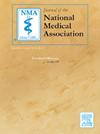Access to CAR T-Cell Therapies in Minority Communities: A Patient Survey Study of Disparities in Multiple Myeloma Care
IF 2.3
4区 医学
Q1 MEDICINE, GENERAL & INTERNAL
引用次数: 0
Abstract
Background
Chimeric Antigen Receptor (CAR) T-cell therapy is a groundbreaking treatment for multiple myeloma, offering a potentially life-extending option for eligible patients. However, due to its high cost, intensive logistical requirements, and availability generally limited to specialized centers, access may not be equitably distributed. Black and Hispanic patient may experience disproportionately limited access to this therapy. While institutional and systemic disparities have been documented, less is known about how patient-level experiences, perceptions, and social determinants influence access and treatment outcomes.
Objective
This study aims to characterize disparities in access to CAR T-cell therapy among patients with multiple myeloma, with a particular focus on race, ethnicity, socioeconomic status, and social determinants of health. It further seeks to assess how these factors influence patient satisfaction and perceptions around treatment decision-making.
Methods
This is a prospective, cross-sectional survey study involving patients diagnosed with multiple myeloma, including those who are eligible for or have considered CAR T-cell therapy and who are enrolled in the HealthTree research registry. Participants will complete a 25–35-minute survey consisting of up to 46 questions on treatment experiences, access to care, perceived barriers, and patient-reported outcomes. An additional 11 questions will capture demographic and socioeconomic data, including race/ethnicity, education level, insurance type, and neighborhood-level metrics. The survey will be disseminated electronically via the HealthTree platform. Data will be analyzed using descriptive statistics and comparative analyses (e.g., chi-square tests, t-tests, ANOVA), with multivariable models used to assess factors associated with disparities in access and outcomes.
Results (Trial in Progress)
As of June 2025, data collection is ongoing. Preliminary survey responses have been received from a diverse group of participants enrolled in the HealthTree registry.
Discussion
This study will provide real-world patient-level insights into disparities in CAR T-cell therapy access, beyond clinical and institutional metrics. By highlighting patient experiences and perceptions, it aims to inform policy, provider education, and system-level interventions that can close the access gap and improve equity in advanced myeloma care.
少数民族社区CAR - t细胞治疗的可及性:多发性骨髓瘤治疗差异的患者调查研究
嵌合抗原受体(CAR) t细胞疗法是多发性骨髓瘤的突破性治疗方法,为符合条件的患者提供了可能延长生命的选择。然而,由于其高成本,密集的后勤要求,以及通常限于专业中心的可用性,访问可能无法公平分配。黑人和西班牙裔患者获得这种治疗的机会可能会受到不成比例的限制。虽然已经记录了制度和系统差异,但对于患者层面的经验、观念和社会决定因素如何影响获取和治疗结果,我们知之甚少。本研究旨在描述多发性骨髓瘤患者获得CAR - t细胞治疗的差异,特别关注种族、民族、社会经济地位和健康的社会决定因素。它进一步寻求评估这些因素如何影响患者满意度和对治疗决策的看法。方法:这是一项前瞻性横断调查研究,涉及诊断为多发性骨髓瘤的患者,包括那些符合条件或考虑进行CAR - t细胞治疗的患者,以及在HealthTree研究登记处登记的患者。参与者将完成一项25 - 35分钟的调查,包括多达46个问题,涉及治疗经验、获得护理、感知障碍和患者报告的结果。另外11个问题将收集人口统计和社会经济数据,包括种族/民族、教育水平、保险类型和社区水平指标。调查将通过HealthTree平台以电子方式传播。将使用描述性统计和比较分析(例如卡方检验、t检验、方差分析)对数据进行分析,并使用多变量模型来评估与获取和结果差异相关的因素。结果(试验进行中)截至2025年6月,数据收集正在进行中。已经收到了来自健康之树登记处登记的不同参与者群体的初步调查答复。本研究将提供真实世界患者层面的见解,了解CAR - t细胞治疗获得的差异,超越临床和机构指标。通过强调患者的经验和看法,它旨在为政策、提供者教育和系统级干预提供信息,以缩小晚期骨髓瘤护理的获取差距并提高公平性。
本文章由计算机程序翻译,如有差异,请以英文原文为准。
求助全文
约1分钟内获得全文
求助全文
来源期刊
CiteScore
4.80
自引率
3.00%
发文量
139
审稿时长
98 days
期刊介绍:
Journal of the National Medical Association, the official journal of the National Medical Association, is a peer-reviewed publication whose purpose is to address medical care disparities of persons of African descent.
The Journal of the National Medical Association is focused on specialized clinical research activities related to the health problems of African Americans and other minority groups. Special emphasis is placed on the application of medical science to improve the healthcare of underserved populations both in the United States and abroad. The Journal has the following objectives: (1) to expand the base of original peer-reviewed literature and the quality of that research on the topic of minority health; (2) to provide greater dissemination of this research; (3) to offer appropriate and timely recognition of the significant contributions of physicians who serve these populations; and (4) to promote engagement by member and non-member physicians in the overall goals and objectives of the National Medical Association.

 求助内容:
求助内容: 应助结果提醒方式:
应助结果提醒方式:


